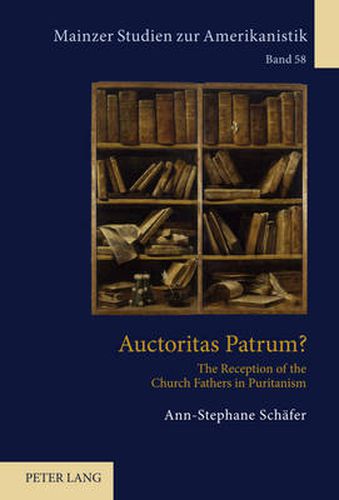Readings Newsletter
Become a Readings Member to make your shopping experience even easier.
Sign in or sign up for free!
You’re not far away from qualifying for FREE standard shipping within Australia
You’ve qualified for FREE standard shipping within Australia
The cart is loading…






This study focuses on how Puritans in England and especially New England used the church fathers when reading the Bible and defending Congregationalism. The analysis of a variety of textual genres and largely unedited sources written between 1592 and 1728 shows that patristic sources are often cited. Contrary to the widespread assumption that they embraced a fundamentalist Biblicism, Puritans prove to be fully engaged in the rich traditional theological discourse and display a remarkable knowledge of the church fathers. Their authority was that of close witnesses of the primitive age rather than conclusive evidence that would compromise the sola scriptura principle. The church fathers were an integral part of the professional training of Puritan ministers, who relied on them as interpretive aids in exegesis and as model homilists. The findings also suggest that Puritans perceived of New England in terms of typological continuity, with early Christians as models to be imitated regarding church membership, baptism, church office and discipline as well as endurance in times of persecution and dissent.
$9.00 standard shipping within Australia
FREE standard shipping within Australia for orders over $100.00
Express & International shipping calculated at checkout
This study focuses on how Puritans in England and especially New England used the church fathers when reading the Bible and defending Congregationalism. The analysis of a variety of textual genres and largely unedited sources written between 1592 and 1728 shows that patristic sources are often cited. Contrary to the widespread assumption that they embraced a fundamentalist Biblicism, Puritans prove to be fully engaged in the rich traditional theological discourse and display a remarkable knowledge of the church fathers. Their authority was that of close witnesses of the primitive age rather than conclusive evidence that would compromise the sola scriptura principle. The church fathers were an integral part of the professional training of Puritan ministers, who relied on them as interpretive aids in exegesis and as model homilists. The findings also suggest that Puritans perceived of New England in terms of typological continuity, with early Christians as models to be imitated regarding church membership, baptism, church office and discipline as well as endurance in times of persecution and dissent.